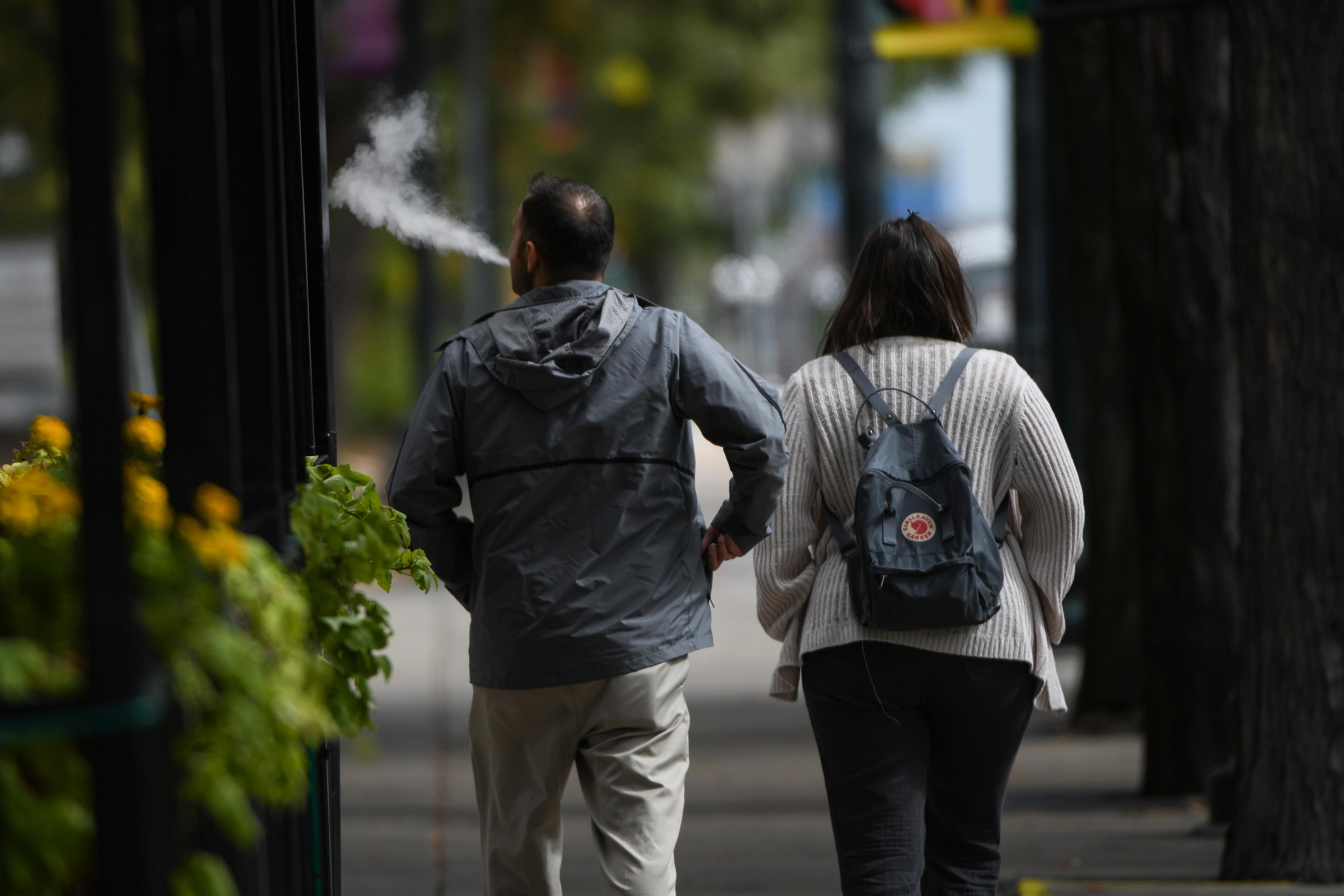
Colorado lawmakers have made reining in teen vaping a top priority for the 2020 legislative session.
When House Democrats released their initial list of proposed bills Wednesday, new vaping regulations were literally first, in a bill listed as HB20-1001.
The label 1001 is of symbolic importance, indicating lawmakers’ top priorities for the session.
The bill, which has bipartisan support, would tighten regulations by requiring every nicotine retailer have a state license, which would also entail checks to ensure retailers are in compliance. The bill also holds retailers accountable for preventing underage sales and removes a criminal penalty for minors caught purchasing nicotine products underage.
State Rep. Colin Larson, a Republican from Littleton, a co-sponsor, says he thinks it'll make a difference.
“I think this (licensure) is the single biggest thing that we could have done to mitigate teen usage,” he said. “Social acquisition, which is the SAT version of kids buying from other kids, is the number one way how people get hooked on these products.”
It also raises the age to legally buy nicotine products from 18 to 21. That would put Colorado law in line with federal rules after Congress passed national legislation to raise the purchase age last month.
More than one in four Colorado teens now use e-cigarettes, a rate that’s double the national average. The state leads the nation for underage vaping, according to a 2018 survey.
Grier Bailey, the executive director of the Colorado Wyoming Petroleum Marketers Association, which represents most of the state’s roughly 2,000 convenience stores, worries it will impose onerous regulations on small businesses.
"The folks who are going to be actually licensed really weren't a part of development of any of the actual licensing language,” he said. “It was kind of written not with our input."
Public health groups praised the new bill.
“Parents, students, and teachers across the state are feeling the fallout from vaping,” said Healthier Colorado’s executive director Jake Williams. “We are no longer willing to be ground zero for America’s teen vaping epidemic.”
Williams cited polling conducted for his group that found strong bipartisan support in the state for statewide licensing, raising the nicotine purchase age to 21 and eliminating a loophole that allows young people to buy tobacco products online.
An increasing body of scientific research has raised concerns about the health impacts of vaping, including addiction and damage to the lungs and heart.
“We believe this bill is a step in the right direction,” said Rebecca Dubroff, state government relations director with the American Heart Association. She said the proposed tobacco retail license would “serve as an effective enforcement tactic, and be an integral part in future tobacco control policy.”
The proposed measure would ramp up compliance checks by the Liquor Enforcement Division of the state’s Department of Revenue and ban new retail locations within 500 feet of schools. It would also create new fines and penalties for failing to get a license or for selling products to those under age 21.
And it aims to hold retailers accountable if they sell to minors by lifting a criminal penalty for minors who purchase the products.
“I understand where they're trying to go with that, it needs a little bit of work,” Bailey said.
Under current policy, he said, retailers are given credit for making a good faith effort to prevent underage sales, by doing things like employee training and ID card scanners.
“Under this proposal, that benefit is generally thrown away,” he said.
Larson, the bill’s co-sponsor, thinks lawmakers took retailers’ concerns into account and crafted legislation that balances concerns about over-regulation with trying to limit teen use.
"(It's important we) have exact clarity over what does it mean to sell tobacco?" Larson said. "What are the fines? How is this going to be enforced?”








